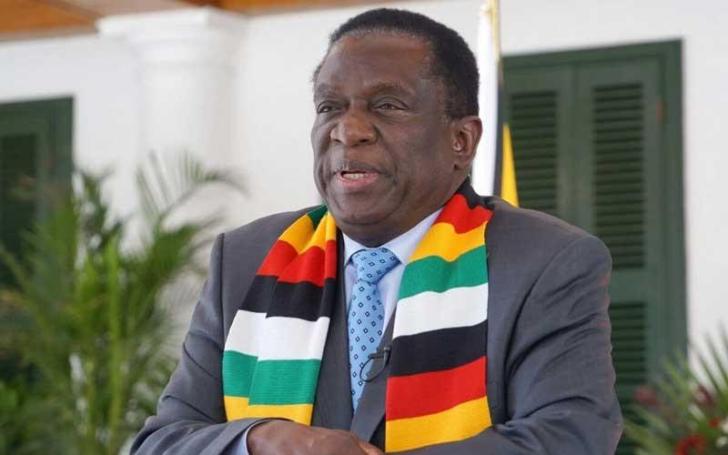News / National
Mnangagwa says power cuts cast a cloud over Sadc
04 Dec 2024 at 06:52hrs |
2 Views

President Emmerson Mnangagwa has highlighted the persistent electricity shortages facing Zimbabwe and other Southern African Development Community (SADC) member states, calling them a major hindrance to regional development.
Addressing the issue during the groundbreaking ceremony for Titan New Energy's US$1 billion investment project in Hwange on Monday, Mnangagwa emphasized the vital role of energy as an economic enabler for sustainable development. The project will see the construction of a 720MW waste-to-energy power plant and a 200MW solar power plant, set for completion by the end of 2028. Once operational, the plants are expected to generate an annual power output of 5.76 GWh, contributing significantly to the region's energy needs.
Mnangagwa noted that energy access was central to the development agenda, not only for Zimbabwe but also for the broader SADC region. "Energy access and availability are some of the key enablers of sustainable development," he said. "At the level of SADC, the importance of energy in the integration agenda cannot be over-emphasized."
He pointed out that despite the region's abundant energy resources, which include solar, wind, hydro, and gas, there is a pressing need for greater investments to fully tap into these resources. According to the African Development Bank, the hydropower potential in SADC member states is estimated at 1,100 terawatt hours per year, with less than 50 terawatt hours currently being utilized.
President Mnangagwa called for a stronger focus on increasing energy generation capacity, particularly in renewable energy, to achieve a sustainable energy mix. "There is also a need to improve transmission interconnections across the region, which would allow collective benefits from new energy projects and boost energy security," he added.
He also invited investors to explore opportunities in both in-country and cross-border energy projects within SADC, highlighting the region's untapped potential.
Zesa Holdings Executive Chairman Sydney Gata further reassured the nation, stating that Zimbabwe would have an energy surplus in the near future. "We have 18 projects in the pipeline that will produce a total of 4,000MW, and in two years, we will have an energy surplus of 600MW," Gata said. "We are already considering where to export the excess energy."
With these ambitious projects, Mnangagwa expressed optimism about the future of Zimbabwe's energy sector, stressing that once fully implemented, they would help alleviate the region's energy crisis and accelerate economic growth.
Addressing the issue during the groundbreaking ceremony for Titan New Energy's US$1 billion investment project in Hwange on Monday, Mnangagwa emphasized the vital role of energy as an economic enabler for sustainable development. The project will see the construction of a 720MW waste-to-energy power plant and a 200MW solar power plant, set for completion by the end of 2028. Once operational, the plants are expected to generate an annual power output of 5.76 GWh, contributing significantly to the region's energy needs.
Mnangagwa noted that energy access was central to the development agenda, not only for Zimbabwe but also for the broader SADC region. "Energy access and availability are some of the key enablers of sustainable development," he said. "At the level of SADC, the importance of energy in the integration agenda cannot be over-emphasized."
He pointed out that despite the region's abundant energy resources, which include solar, wind, hydro, and gas, there is a pressing need for greater investments to fully tap into these resources. According to the African Development Bank, the hydropower potential in SADC member states is estimated at 1,100 terawatt hours per year, with less than 50 terawatt hours currently being utilized.
President Mnangagwa called for a stronger focus on increasing energy generation capacity, particularly in renewable energy, to achieve a sustainable energy mix. "There is also a need to improve transmission interconnections across the region, which would allow collective benefits from new energy projects and boost energy security," he added.
He also invited investors to explore opportunities in both in-country and cross-border energy projects within SADC, highlighting the region's untapped potential.
Zesa Holdings Executive Chairman Sydney Gata further reassured the nation, stating that Zimbabwe would have an energy surplus in the near future. "We have 18 projects in the pipeline that will produce a total of 4,000MW, and in two years, we will have an energy surplus of 600MW," Gata said. "We are already considering where to export the excess energy."
With these ambitious projects, Mnangagwa expressed optimism about the future of Zimbabwe's energy sector, stressing that once fully implemented, they would help alleviate the region's energy crisis and accelerate economic growth.
Source - newsday
Join the discussion
Loading comments…






























